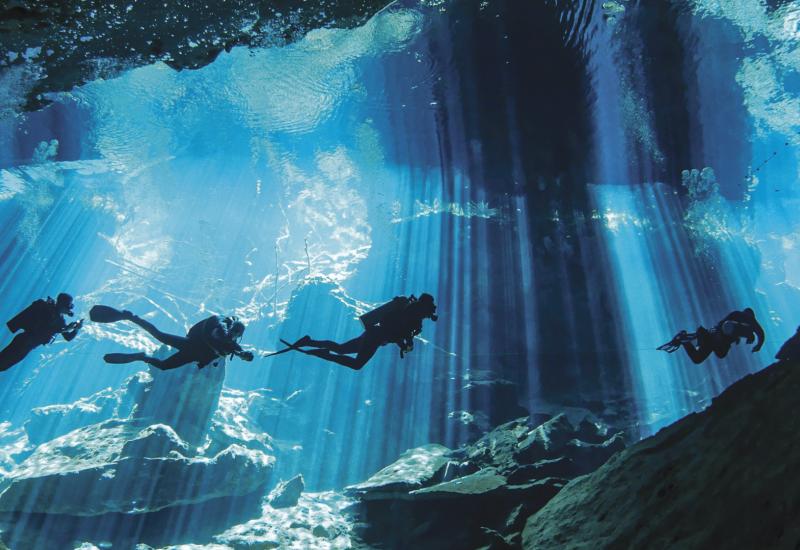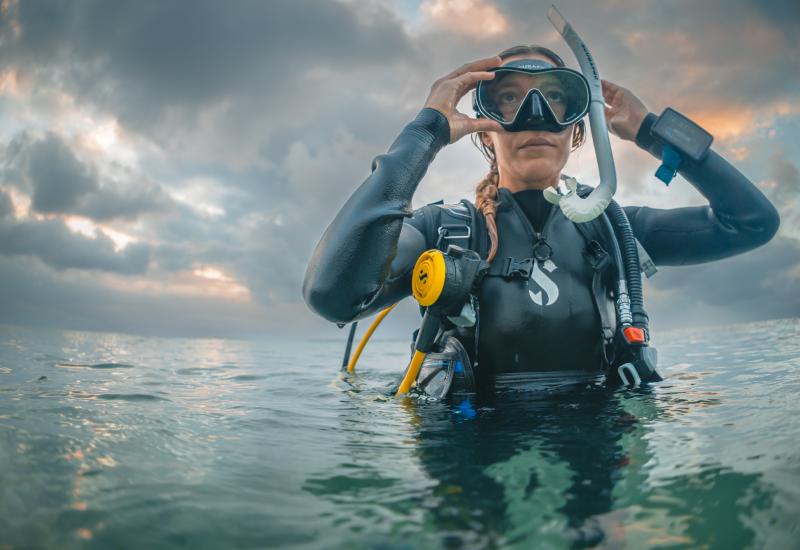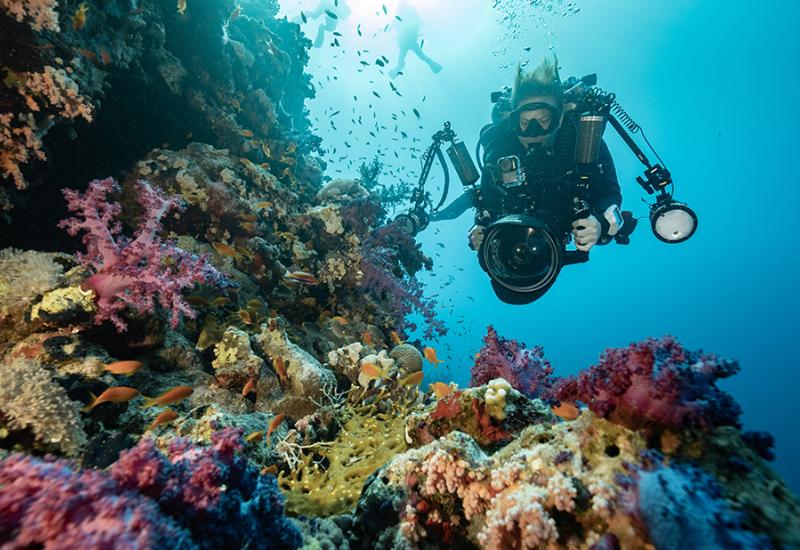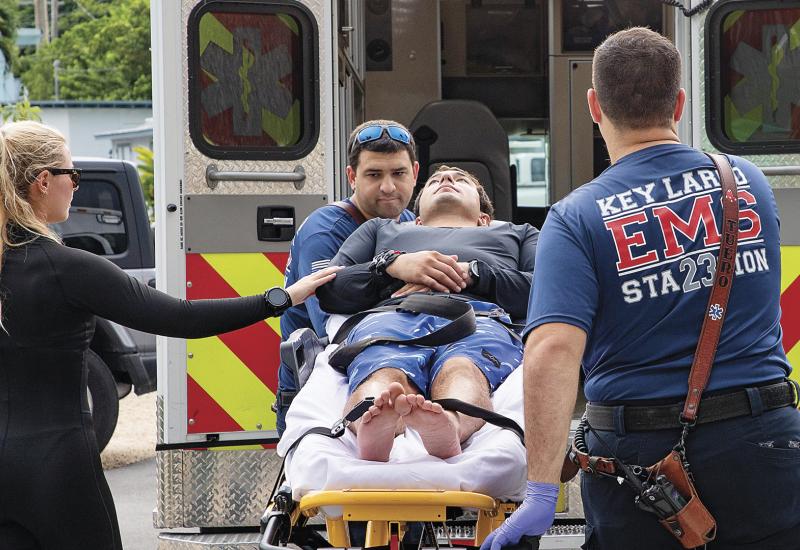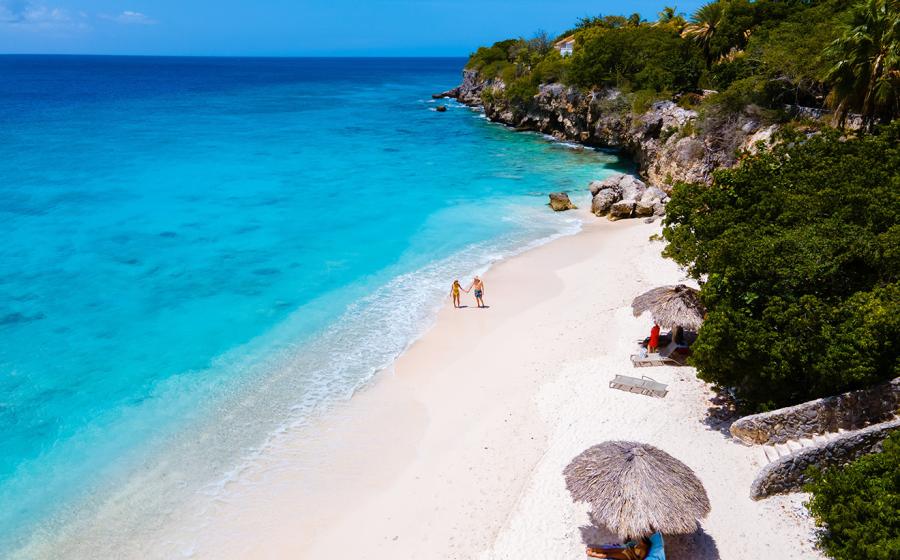Hypoxia Scare | Lessons for Life
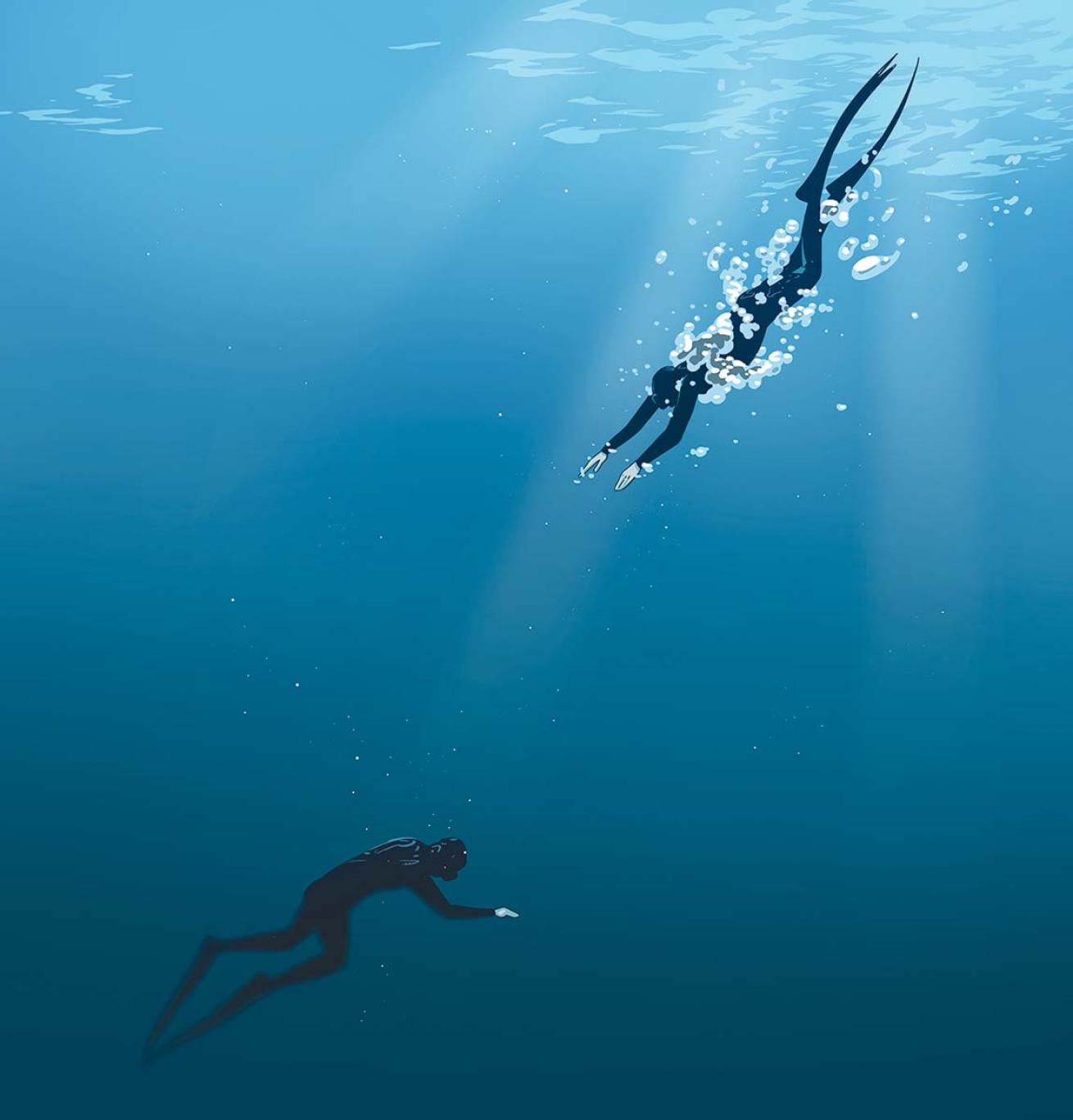
Steven P. HughesBuddies are vital to any dive.
For CJ, freediving was the best way to explore the ocean. He loved the freedom of diving down with such minimal gear, and the absolute quiet underwater. After diving with his buddy Greg all day, CJ could tell he was getting tired. He thought to himself on the way to the surface that he would make just one or two more drops before calling it a day. That was the last thought that went through his head before he lost consciousness.
The Diver
CJ was a 40-year-old diver in good health with no known medical conditions. He regularly exercised, and enjoyed biking and swimming when he wasn’t freediving. He earned his scuba certification 10 years earlier but had only been freediving for the past three years off local charter boats or from a nearby shore location at least once a month. Greg was his regular buddy.
The Dive
While shore diving at their local spot. CJ and Greg swam about 100 yards off the beach to a nearby reef. Bottom depths were between 60 and 100 feet. They had a float with a dive flag mounted on top of it. They used a one-up, one-down system in which one diver remains on the surface at all times to act as the safety diver for the one below in case a problem arises. In the meantime, the diver above could take some deep breaths in preparation for their next drop.
The Accident
CJ dived to about 70 feet of water and looked around the reef for nearly two minutes before he decided it was time to surface. He had been fighting the urge to breathe for the last 30 seconds. On the surface, Greg kept close watch on his friend. When CJ was about 10 feet below the surface, Greg noticed CJ was slowing down. A moment later, CJ stopped moving altogether. Greg immediately swam down to grab him at about 6 feet. He moved into a rescue position behind CJ and brought him to the surface.
Greg towed CJ to the float about 15 feet away from where they surfaced, keeping CJ’s head above water and his airway clear. As he was being towed, CJ started breathing. He regained full consciousness about a minute after they got to the float. He did not recall the incident at all. Greg then towed CJ back to shore and they visited the emergency department to be safe. CJ was released with no signs of a problem at all. Luckily, he had not inhaled any water while unconscious.
Analysis
What CJ experienced is known as hypoxia of ascent, or shallow-water blackout. There are two factors at play. When you hold your breath underwater, you use up the oxygen stored in your bloodstream, body tissues and lungs. The oxygen levels in your body are depleted until you surface and take another breath.
At the same time, the pressure exerted by the water at depth pushes the oxygen molecules in your body closer together. Your body reacts to that compression as if there were a higher percentage of oxygen available.
The greatest change in pressure on the body is in the last 33 feet of depth before reaching the surface. Pressures are cut in half. Shallow-water blackout happens when a freediver has used up the oxygen stores in the body due to exertion and normal metabolic functions and the partial pressure of the gas in the body returns to surface pressure. That’s why blackouts often happen near the surface.
CJ made a dive to about 70 feet, the equivalent of three atmospheres of pressure. At depth, CJ had the equivalent of more than 60 percent oxygen in his lungs. On ascent, the oxygen concentration in his body fell from 60 percent to less than 21 percent as he reached the surface, and he subsequently blacked out.
The way CJ and Greg were diving certainly saved CJ’s life and turned what could have been a tragedy into a minor incident. Providing close supervision for each other ensured that Greg was ready and able to rescue his buddy easily. The fact that hypoxia of ascent happens at shallow depths makes it relatively easy for a buddy to respond to an emergency and make a rescue if they are close by and paying attention.
Greg noted that the dive happened after they had both completed deeper and longer dives earlier in the day. Over the course of his dives, CJ had effectively depleted any reserve oxygen in his system. While both divers made sure to catch their breath, their bodies hadn’t fully recovered.
A common misconception is that decreasing oxygen in the lungs is what signals the need to breathe and return to the surface. The breathing reflex is actually caused by the buildup of carbon dioxide in the body.
The practice has fallen out of favor, but some beginner freedivers hyperventilate to reduce the amount of carbon dioxide in their system, which can delay the need to breathe. This dangerous practice allows you to stay down longer on a single breath, but it does not increase the amount of oxygen in your system, thus increasing your chance of losing consciousness just below the surface.
The better way to learn how to stay down longer and dive deeper while holding your breath is through training and practice. There are excellent training programs available that teach freedivers to expand their lung capacity and to calm themselves before and during a dive, decreasing the amount of oxygen they use while underwater.
Lessons For Life
- Use the buddy system. Never freedive alone. Make sure your buddy is prepared and trained to perform a rescue should you lose consciousness in the water.
- Seek training. While just about anyone can go snorkeling and make short, shallow dives with a mask and snorkel, if you want to go deeper and stay longer, the PADI Basic Freediver course will teach you the proper techniques to get there safely.
- Be prepared for an emergency. Learn how to rescue an unconscious diver and deliver emergency-oxygen first aid. This training can save a life. Consider purchasing your own emergency-oxygen kit to have on hand for emergencies, after seeking proper training.

